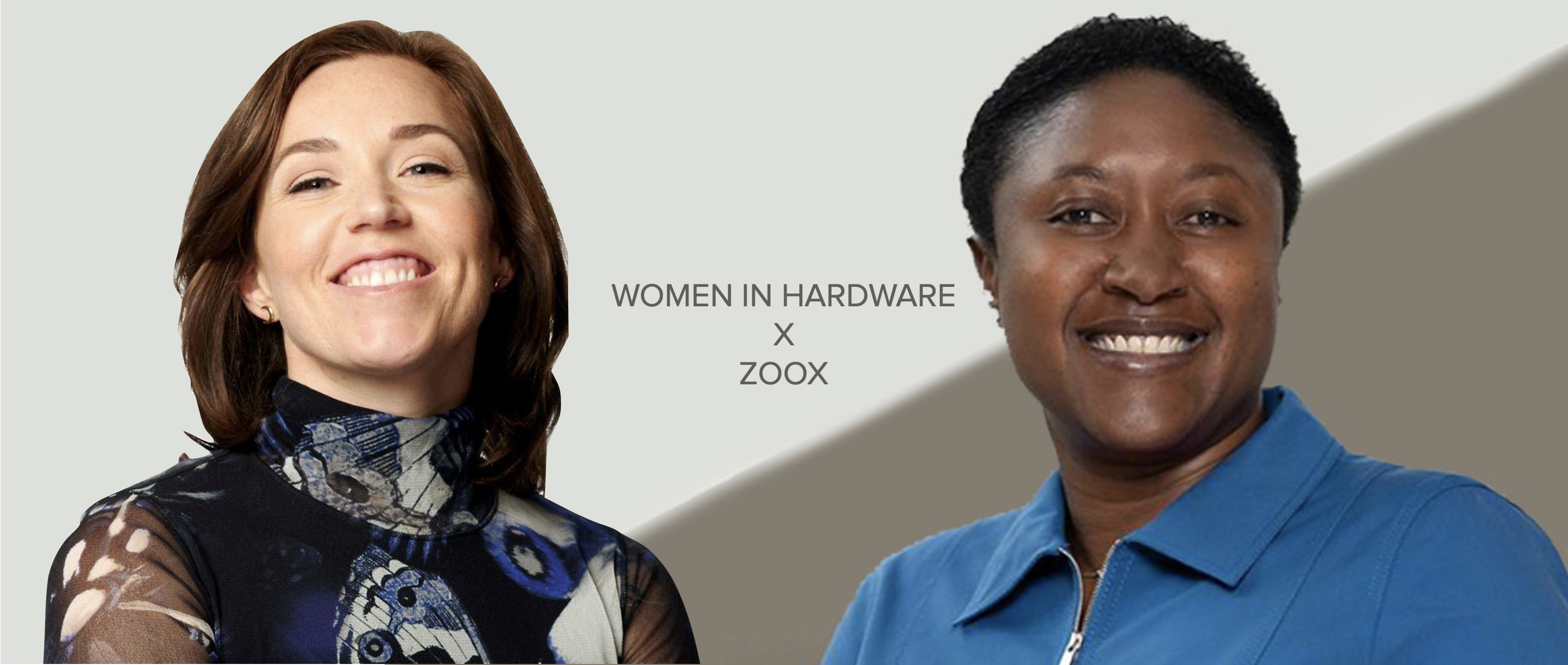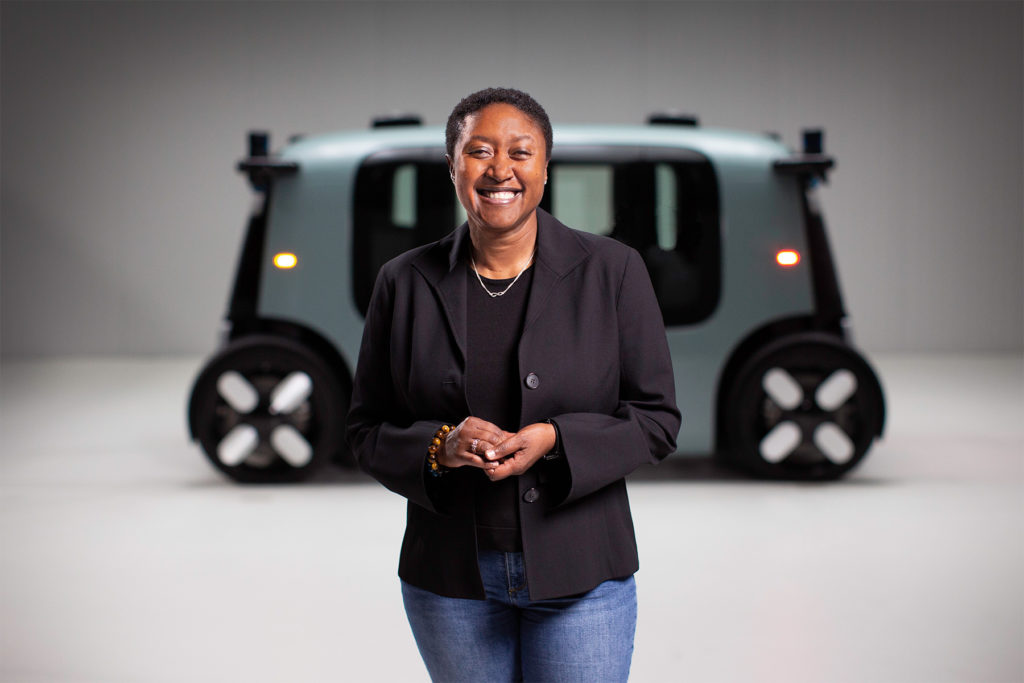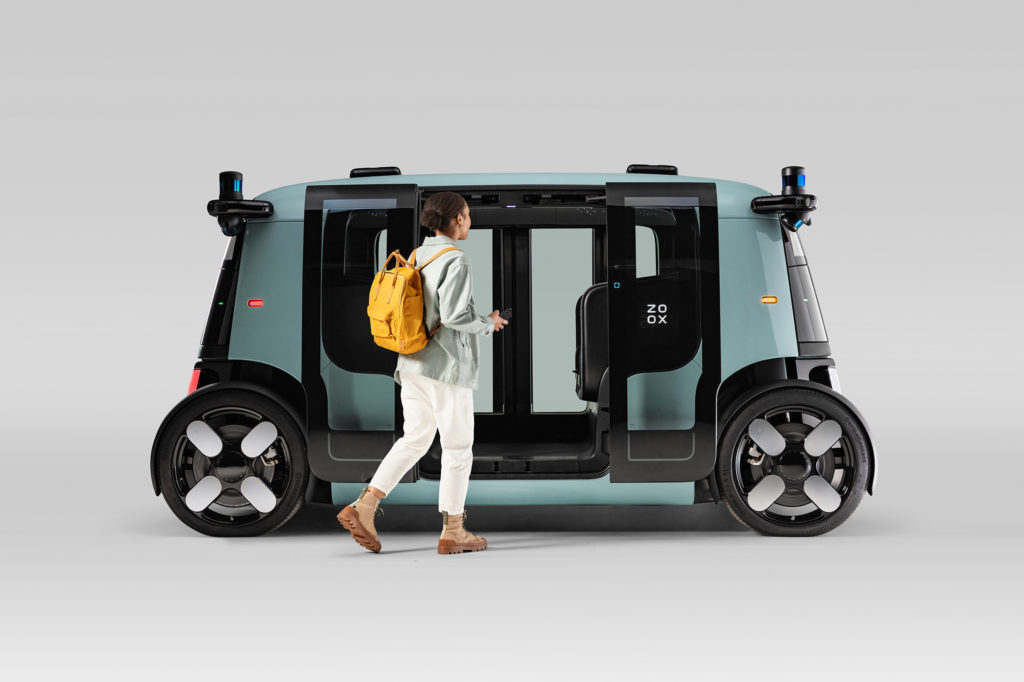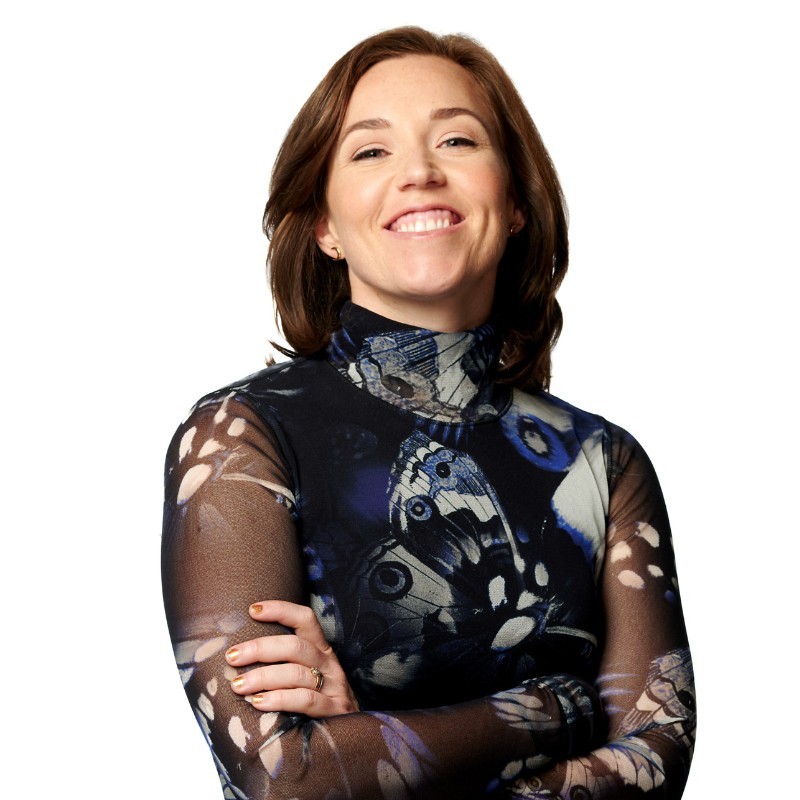
On March 15th, I had the opportunity to catch up with Aicha Evans, CEO of Zoox, for our most recent Women in Hardware event. I’m deeply interested (and invested) in the future of transportation and Aicha is at the forefront — in December 2020, Zoox unveiled their autonomous “robotaxi,”, designed to navigate urban spaces without a driver. Earlier that year, Zoox was bought out by Amazon in an acquisition rumored to be north of $1B. We took this opportunity to discuss her lessons in leadership, how she prepared Zoox’s acquisition, and the importance of shared values. This event raised over $1k for BLCKVC. We’re pulling back the curtain — join the conversation below.
Kate McAndrew: You spent 12 years at Intel, leaving the company as Chief Strategy Officer. Over that time, you worked on some of the fundamental technology that much of the contemporary hardware ecosystem is built upon including bluetooth and 5G. Going to a startup was a big change. What made you choose Zoox?
Aicha Evans: There was enough happening at Intel, and enough happening for me that I was saying to recruiters: Thank you very much but I’m not interested. One recruiter who is a good friend said, Well that’s kind of silly. Why don’t you think about what’s valuable to you? I thought about it and decided that it was important for me to be at a company that has really game changing, forward-looking technology. And it’s got to make me happy. I have to feel I’m having an impact. There needed to be a founder where we had chemistry. And one that needed me because he or she felt that in their gut as opposed to their board said, Hey you need somebody.
Zoox checked all the boxes. Obviously transportation is everything in society. Even the internet is actually a vehicle of transportation. And autonomy – the beginning of a wave. So all that was really good. Then it came down to meeting the co-founder. And we just hit it off.
Kate: What is your process in assessing for fit? And more specifically, how did you approach the interviews with Zoox co-founder/CTO Jesse Levinson?
Aicha: First of all, the mission really has to feel like a calling. Like, I was born to do this. Then I assess the value system. Do we have the same value system? When things are good, things are good. But when things are not good, can we have really tough conversations? Almost like a work husband in a way. During those interviews I asked him (Levinson) some very tough questions. I was like, I’m going to change my entire life to come do this. What’s going to happen when we fully disagree?
Also, understanding the phase the company is in. I would not have been good for Zoox very early on. That’s not who I am. That’s not what I do. I would not have been good for Zoox too late in the process of going to market because if everything is already defined, it’s boring.

Kate: You started as an individual contributor. From there you became an engineering manager and then continued to lead larger and larger organizations with more and more ambitious long-term projects. What’s a leadership lesson you’ve learned, perhaps the hard way?
Aicha: There are three main lessons I learned. First of all, I had to get comfortable being an enabler as opposed to being a doer. It’s not just about the work. It’s also how you conduct yourself in meetings. When the answer comes from me, it may feel good from an ego standpoint but it’s actually a failure. I’m now limiting the company. I’m not teaching people to fish.
I had to get comfortable being an enabler as opposed to being a doer.
Second, you have to care about people, not just the company and the outcome. And you have to demonstrate it every day. Career development means many different things to different people. You have to know what’s important to people. Invest in them and give of yourself.
Last but not least, you have to live by your word. We all say all the right things because we all read the same books. But you actually have to live by it. If you say, you need to take risks and then at the first failure, you’re yelling and firing people? That doesn’t work. I’ve got to give credit where credit’s due. Marshall Goldsmith has been my coach for about ten years. He’s made me a better leader, a better person, a better wife, and a better mother. It happens that those principles actually also apply at home.
Last but not least, you have to live by your word.
Kate: Zoox was acquired by Amazon last year. Were there things you did internally to prepare the company for an acquisition?
Aicha: Well, first of all it is a privilege and an honor to have been chosen by Amazon. I want to be very clear about that. Early on, not on day one but I would say after six months at Zoox, I started socializing a framework. We were fundraising at the time and I said, this is not just about tin cupping for more money. I have to tell you I had had some very sleepless nights where I thought, how many companies have deployed billions of dollars of capital before their first dollar of revenue? Their first dollar of net income? Jesse and I were spending probably 60 or 70 percent of our time fundraising. How does that serve the company when we have such a bold, audacious mission? We have some of the smartest people on Earth, but we have such a variety of disciplines, we need to be bringing people together and integrating everything. So we did a lot of talking about that.
When the opportunity arose with Amazon, I knew that if I truly wanted this company to have the best chance of success on this capital intensive, disruptive, long-term journey, this is how to do it. Amazon has the right mindset for something like this. It’s going to take a long time before we’re out there in the market moving anybody under any circumstances, under all weather conditions. That’s going to be awhile. Amazon is a long-term oriented company. They have capital and are willing to deploy it for growth.

Kate: We think a lot about the confluence of seismic shifts in technology and seismic shifts in culture. With the technology piece, there’s a lot that’s gone into making Zoox possible and a lot that still has to be pushed, as you were mentioning. What cultural changes do you see creating a wave for driverless technology?
Aicha: So the first thing is, we have to earn the phases. We have no business talking to consumers directly right now. We don’t have a product for them. So we have to be very transparent about the fact that this will only be relevant to people in a few years.
We didn’t invent the concept of mobility on demand. So when we start talking to consumers, we won’t be selling driverless technology. We’ll be selling rides. And an experience that is safe, enjoyable, and personal. Self-driving technology and AI are going to enable a ride that’s better than being driven by a human today.
(This interview has been edited and condensed.)
Bolt invests at the intersection of the digital and physical world.
